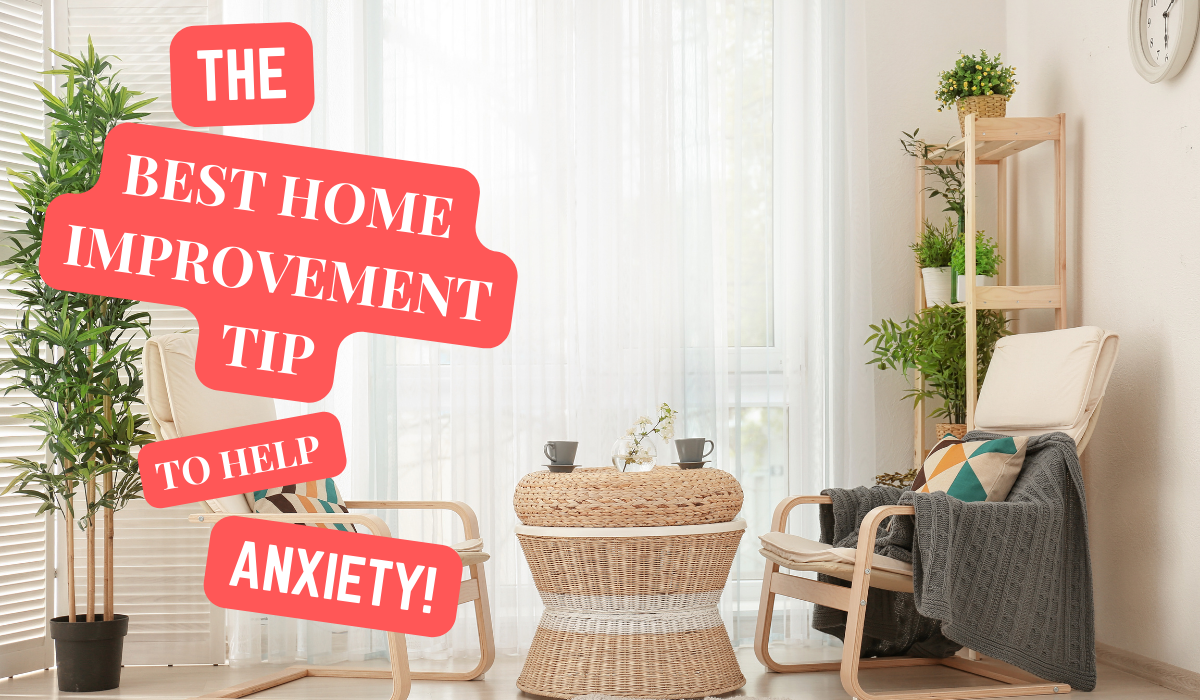
INTRODUCTION
Living a simplified life can have a powerful impact on reducing anxiety levels. We create a sense of calm and clarity by simplifying our surroundings, daily routines, and commitments. Embracing minimalism, practising mindfulness, and focusing on what truly matters can go a long way in alleviating anxiety. So, let’s simplify and enjoy a more peaceful way of life!
By decluttering our physical and mental spaces, simplifying our schedules, and fostering meaningful connections, we can cultivate a sense of calm and balance that is a powerful antidote to anxiety.

Understanding Simplified Living:
- Definition and principles
Simplified living is a lifestyle philosophy centred around intentionally reducing complexity and excess in various aspects of life. It involves streamlining possessions, schedules, commitments, and mental clutter to create space for what truly matters. Simplified living prioritises quality over quantity, fostering a sense of contentment, clarity, and balance.
My journey with Simplified Living
started many years ago. At the time, I worked full-time as a manager in a Health Centre. My kids were in their teens and doing everyday things that kids do—leaving dishes and stuff lying about. I suppose, in all honesty, they weren’t too bad. However, on reflection, I suppose the main fault lay with me. I just had too much stuff.
I always felt stressed; the responsibility of looking after stuff in my home took its toll. Coming in each evening was a nightmare, trying to bring order to a disorderly house. Later in life, when I retrained and became a Counsellor, I realised the strong connection between clutter and anxiety.
Therefore, it was only when I realised I didn’t need half the stuff I was holding on to that I felt the pressure lifting from me. The fewer things I had, the less responsibility and stress I had to carry.

DECLUTTERING YOUR PHYSICAL SPACE TO CALM YOUR MIND:
The therapeutic benefits of minimalism
Individuals create physical spaces that evoke a sense of calm and tranquillity by intentionally reducing material possessions and clutter. This decluttering process extends beyond the external environment, fostering mental clarity and emotional well-being. With fewer distractions and less overwhelm, individuals can better focus on what truly matters, leading to a more profound sense of contentment and fulfilment.
A clutter-free environment reduces visual and sensory overload, creating a more serene atmosphere that promotes relaxation and reduces feelings of stress and overwhelm. In a simplified living context, this spaciousness fosters a sense of clarity and tranquillity, allowing individuals to focus on what truly matters without the distraction of excess belongings.
The following are the basic principles of Simplified Living. If you follow them, you, too, will see a dramatic change in your stress levels.
PRINCIPLES OF SIMPLIFIED LIVING:
- Minimalism: Simplified living embraces the principle of minimalism, advocating for owning and acquiring only what is essential and meaningful. This involves decluttering physical spaces to reduce material possessions to those that serve a purpose or bring genuine joy.
- Intentionality: Central to simplified living is the practice of living with intentionality. This entails making deliberate choices about spending time, money, and energy and aligning actions with personal values and goals.
- Mindfulness: Simplified living encourages mindfulness, or present moment awareness, in all aspects of life. By being mindful of thoughts, emotions, and behaviours, individuals can cultivate a greater sense of peace and clarity, reducing stress and anxiety.
- Balance: Simplified living promotes balance by prioritising the things that matter most, such as relationships, health, and personal growth. This involves setting boundaries, saying no to unnecessary obligations, and allocating time and resources wisely.
- Gratitude: Practicing gratitude is a fundamental aspect of simplified living. By appreciating what one already has and focusing on abundance rather than scarcity, individuals can cultivate a greater sense of contentment and fulfilment in life.
- Environmental Consciousness: Simplified living often aligns with principles of environmental sustainability. Individuals can reduce their ecological footprint and contribute to a healthier planet by consuming less and minimising waste.

PRACTICAL TIPS FOR DECLUTTERING YOUR HOME ENVIRONMENT:
- Start Small: Begin decluttering one area at a time rather than trying to tackle the entire house all at once. To avoid feeling overwhelmed, start with a single room, closet, or even a drawer.
- Set Clear Goals: Define specific objectives for your decluttering efforts, such as creating more space, improving organisation, or reducing stress. Having clear goals will help you stay focused and motivated throughout the process.
- Use the “Keep, Donate, Discard” Method: As you go through your belongings, categorise items into three groups: things to keep, items to donate or sell, and items to discard. Be honest with yourself about what you truly need and use it regularly.
- Declutter by Category: Instead of decluttering by room, consider decluttering by category (e.g., clothing, books, kitchen items). This approach allows you to see all similar items together and make more informed decisions about what to keep.
- Implement the “One In, One Out” Rule: For every new item you bring into your home, consider removing one existing item. This helps prevent clutter from accumulating in the future and encourages mindful consumption.
- Create Designated Storage Spaces: Designate specific areas for different categories of items and use storage solutions such as bins, baskets, and shelves to keep belongings organised and easily accessible.
- Be Ruthless with Sentimental Items: While sentimental items hold emotional value, you must be selective about what you keep. Choose items that truly bring you joy or have significant meaning, and consider taking photos of sentimental objects before letting them go.
- Schedule Regular Decluttering Sessions: Make decluttering a habit by scheduling regular sessions to review and purge your belongings. This ongoing maintenance will help prevent clutter from accumulating over time.
- Get Support: Decluttering can be challenging, so don’t hesitate to enlist the help of family members or friends for support and encouragement. Consider joining a decluttering challenge or online community for additional motivation and accountability.
- Practice Gratitude: Throughout the decluttering process, take time to appreciate the items you choose to keep and the newfound space and clarity that simplified living brings to your home environment. Cultivating a mindset of gratitude can enhance the overall experience of decluttering and simplify living.
My book, ‘DECLUTTER YOUR HOUSE AND MAKE IT A HOME,’ is also full of helpful tips and checklists for organising different rooms in your house.
CONCLUSION:
Overall, simplified living is not a one-size-fits-all approach but a customisable lifestyle philosophy that empowers individuals to create a simpler, more intentional life that aligns with their values and priorities.
By practising Simplified Living, you will experience one of the best ways to calm your mind.

DISCLAIMER
The information on Linda M Cowan’s Blog is only intended for educational and informational purposes. It is not meant to replace professional psychological or psychiatric advice, diagnosis, or treatment.
If you are experiencing a mental health crisis, or if you think you may have a medical emergency, don’t hesitate to get in touch with your healthcare provider or go to the nearest hospital emergency department.
https://lindamcowan.com/how-do-i-stop-overthinking-7-effective-strategies




Pingback: Travel Light a Hand Book for mental Health